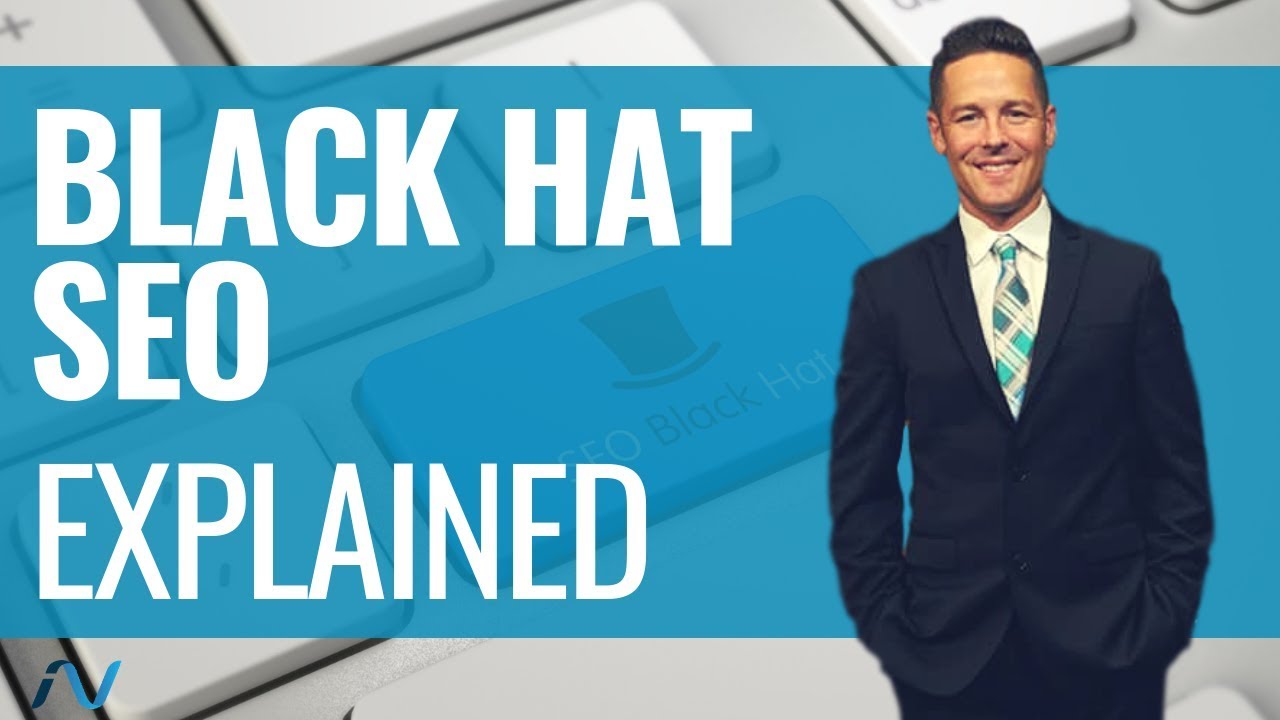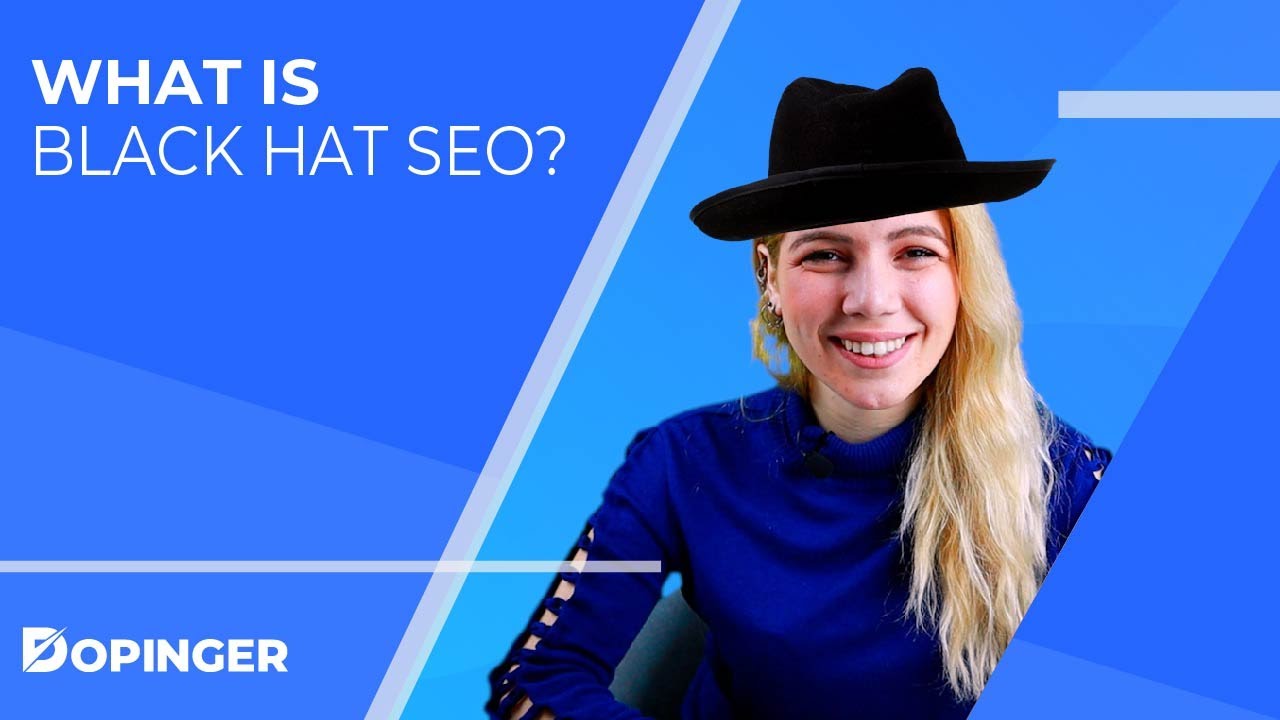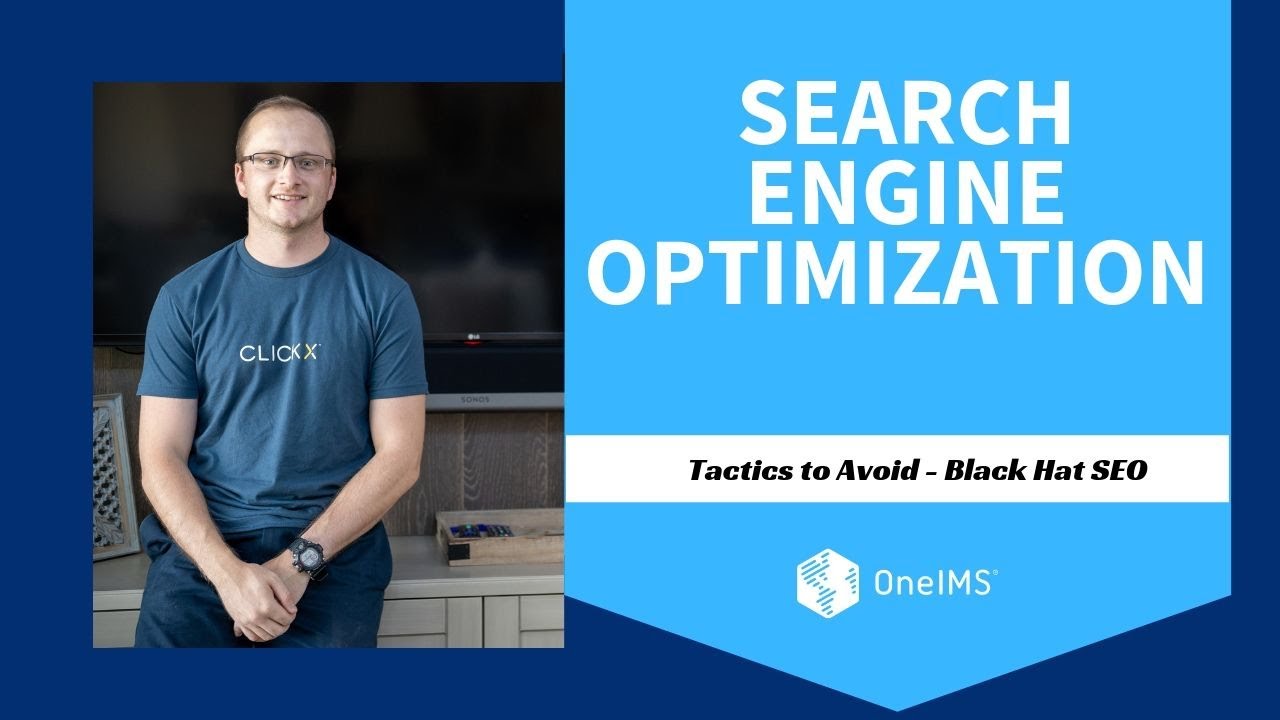As the quantity of articles and online publications continues to rise on a daily basis, publishers are unavoidably obliged to search for innovative ways to increase the visibility of their contenton Google in order to improve the experience of their customers.
Thankfully, most people do not even consider utilizing spammy or black hat SEOstrategies, which could be detrimental to their website and result in fines or blacklisting from search engines.
Employing these strategies, however, puts users at risk of unwittingly violating Google's quality criteria.
This is true even for those who have the best of intentions.
What Is Black Hat SEO?

What is Black Hat SEO? Search Engine Optimization (Explained)
Black hat SEOis a term for ways to improve a website's search enginerankings that are sneaky or against the rules.
It is different from white hat SEO, which uses techniques that search engines like and recommend.
When optimizing their content, site owners and web developers must follow Google's and other search engines' Webmaster Guidelines.
If you don't follow these rules, you could get in trouble.
You can avoid using "black hat" SEOtechniques by reading the Google Webmaster Guidelines.
Several bad things you do on your site, whether you know it or not, can get you penalized.
One of the most common methods is to use too many keywords.
People use the same keywords over and over in their writing to get to the top of the Search Engine Results Pages (SERPs).
This makes the content hard to read and less useful for readers, often to the point where it is impossible to understand.
You probably already know that search engines like Google use algorithms to give users relevant results based on what they type into the search box.
These search algorithms are always getting new updates and getting better.
This means that they are also getting better at finding spammy SEO techniques like keyword stuffing and other "black hat" methods.
When you get a Google penalty, your rankings tend to drop a lot.
On the other hand, the search engine might remove your website from all search results.
This usually happens when an algorithm update finds that your site has bad SEO practices.
It is possible to get back into Google's good graces after a penalty, but it takes a lot of work.
It's much easier and better to never find yourself in that situation.
So, the best thing to do is to learn about black hat practices so you can avoid them completely.
The Risks Of Black Hat SEO
Using "black hat" techniques to get your website to rank higher comes with a lot of risks, which is why most SEOs don't even think about them.
Most people in the SEO industry think that these practices are completely wrong.
But the truth is that there are and probably will always be a small number of marketers who want to try to cheat the system and speed up their site's natural success.
But even if black hat SEO techniques work for your website, the effects usually don't last long.
When we look at Google's Webmaster Guidelines, it's clear that they tell us the following about the basics of SEO:
“„Avoid tricks intended to improve search engine rankings. A good rule of thumb is whether you'd feel comfortable explaining what you've done to a website that competes with you, or to a Google employee. Another useful test is to ask, "Does this help my users? Would I do this if search engines didn't exist?"
Black hat techniques don't help users, and they wouldn't be used if there were no search engines.
Why Should You Avoid Black Hat SEO?

What is Black Hat SEO? Black Hat SEO Techniques (Why Should You Avoid?) - Dopinger.com
If you use Black Hat SEO techniques, Google and other search engines may ban your site.
Even though you may have some short-term success if more people visit your site, Google's penalties are getting smarter and can hurt your rankings and traffic in a very bad way.
With hundreds of millions of people using Google every day to search for things, can you really afford to be de-indexed?
3 Reasons To Avoid Black Hat SEO
SEO is all about getting more people to see and visit a website naturally, but using "black hat" techniques can have the opposite effect.
We've broken this down into three main points to help you understand why you shouldn't do this.
It Can Negatively Impact Your Search Rankings And Visibility
The most important reason not to use black hat SEO is that it will hurt your site's search rankings, visibility, and traffic in the long run.
When a website loses traffic and visibility, conversions and revenue tend to go in the same direction.
This can cause a business's income to go down, cost jobs, or even cause the businessto close.
At best, a big drop in organic traffic will mean that you need to spend more on PPC or other paid media to make up for it.
It Won’t Drive Long-Term Results
Even if manipulative techniques make rankings and organic performance better at first, this is rarely the case.
Even though it might take Google a while to figure out that a site is using unethical methods (this could be because a manual review was done or because a core algorithm was updated), once they do, the site will lose traffic.
Maybe the only thing worse than not being able to rank a site at all is having its rankings and traffic boosted artificially, only for them to drop suddenly soon after.
Businesses need to know what to expect, and black hat tactics can't give them that.
It Typically Results In A Poor User Experience
SEO needs to think about how a user interacts with a website and work to provide the best content and the best user experience(UX).
But black hat techniques do the exact opposite.
Instead of optimizing for users, they focus on what they think search engines want to see.
In and of itself, this can be a problem.
Trust is a big part of how well a search works.
If search engines are given more importance than users, it's likely that the site won't be able to convert as well as it could.
8 Black Hat SEO Tactics To Avoid

Search Engine Optimization Tactics To Avoid - Black Hat SEO | OneIMS
PBNs
Private blog networks (PBNs) used to be a common way for marketers to quickly get links to a website that was new or not doing well.
PBNs are a group of websites with a lot of authority that works together to build links and promote sponsored content.
People often make fun of these sites because they are set up to take advantage of Google's PageRank algorithm.
Instead of paying for PBN access, you should grow your reach and offer guest blog posts to trusted outlets and platforms.
Keyword Stuffing
No longer is it a good way to rank to fill your articles with as many keywords as possible.
Before you send in an article, plug-ins for WordPressand content management systems (CMS) like Yoast SEO and All in One SEO can help find out if you've used too many keywords.
You don't want to write an article that sounds unnatural or like spam, which is a common reason for Google to lower your PageRank.
No one knows for sure what keyword density Google's PageRank algorithm likes best, but many SEO experts try to use the keyword they want to rank for in 1-2% of the article.
Content Cloaking
Tell the truth to your visitors.
If the title or headline of your article is about, say, how toadd gold or silver investments to your retirement savings account, don't trick people by talking about stock market investing instead.
"Content cloaking" is the act of tricking your readers into believing something that isn't true.
If you do this, your domain could get hit with a big penalty.
Article Duplication
Google likes websites that add new, useful, and original content regularly.
If you republish online content that's already out there or content that's only slightly changed from the original, Google might not like it.
Since algorithms can easily find duplicate content on the web, you should always publish unique content, even if you wrote it first.
Comment Spamming
Even though it happens less and less often now, there was a time when comment sections were full of comments that were written by bots to build backlinks.
Google has since changed its algorithm to get rid of links that come from spam or bots and give them less weight.
In any case, links from comment sections usually have "nofollow" HTML tags that won't affect how well you rank.
Buying Links
Links should not be bought, but rather earned.
Google doesn't like links that come from paid guest posts or sponsored content, but it gives PageRank (or "link juice") to domains that are linked to because their content is good.
In other words, your plan for backlinks should be natural.
A successful link-building strategy starts with making content that is honest, original, and adds value to your readers' lives.
If you can do that, backlinks will start coming to you on their own over time.
Spamdexing
Spamdexing is a bad practice in which software is used to spam search engine results with backlinks.
This adds thousands of backlinks to your website and is done only to boost your page rank or search engine ranking.
Unethical Redirects
When a redirect link sends the user to a different page than the one the link says it will, it is not ethical.
This is done because the link tricks people into taking the path you want them to take, even if they don't care about the site they end up on.
This type of black hat SEO should be avoided at all costs if you want to stay in good standing with Google and keep your online presence's credibility.
Best Practices To Avoid Black Hat SEO
If you want to avoid black hat techniques at all costs, there are some important best practices that can help:
Carefully Check Out The People You Hire
Make sure you carefully check out the agencies and freelancers you work with.
If someone tells you something that sounds too good to be true, like getting to number one in a week, you should be suspicious.
Before you sign the contract, find out what methods they will use to promote your brand.
Quality Should Come First
In all of your SEO strategies, quality should be the most important thing.
Your blog posts, links, and content from other sites should all look as polished and professional as possible.
Focus On User Optimization Over Algorithm Optimization
It can be tempting to make all of your plans fit the search engine algorithms that rule the web.
But it's usually better to make your content work for the people who will read and interact with it.
People Also Ask
What Is A Black Hat SEO Technique?
Black hat SEO is a method that goes against the rules of search engines and is used to move a site up in search results.
These unethical methods don't help the person doing the search, and search engines often punish sites that use them.
Black-hat methods include keyword stuffing, cloaking, and using private link networks.
What Is An Example Of Black Hat SEO?
Black hat SEO includes things like hiding text, cloaking, and spamming blog comments.
White-hat SEO techniques involve giving users accurate, relevant, and well-organized content that is of high quality.
Why Is It Called Black Hat SEO?
Black hat SEO is a set of techniques that are used to get a site or page to rank higher in search engines by breaking the terms of service for those search engines.
The term "black hat" came from Western movies, where "bad guys" wore black hats and "good guys" wore white hats.
Conclusion
White hat is the way to go when it comes to SEO.
Use a search engine optimizationcompany to stay away from the black hat SEO techniques we've talked about above.
If you are caught using spammy SEO techniques, you will not only get a manual penalty from Google, but you will also make it harder for your website to rank on the search engine results pages if it isn't gone for good.
